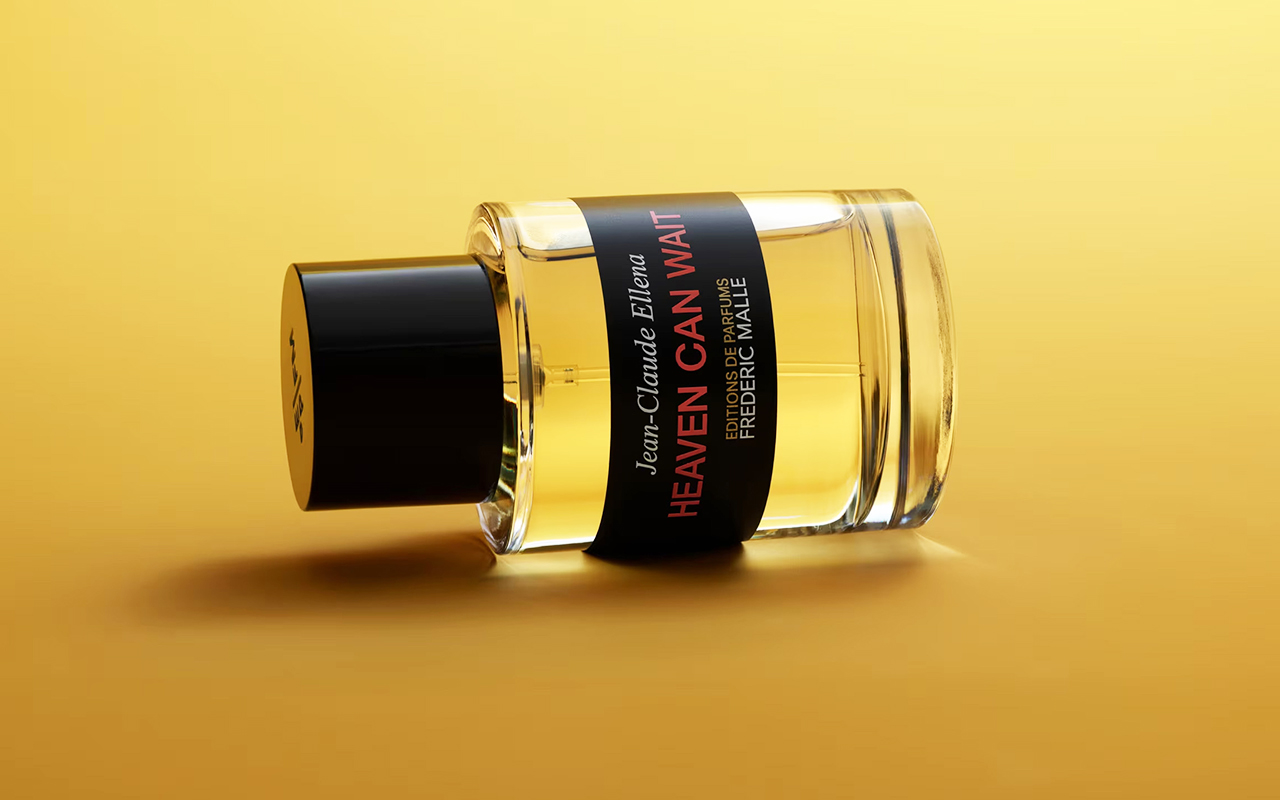Everything
In the world of fragrance, a perfume that captures your essence is rare. A fragrance that becomes an extension of oneself, rarer still. For me, the first time this happened was with Paprika Brasil by Hermès. Part of their Hermessences, it was the perfect companion for every season, fitting seamlessly into any occasion. Its sheer cloud of iris was warmed by fiery notes of pimento and paprika and golden glow of rosewood in the base. Created by then in-house perfumer Jean-Claude Ellena, this masterpiece, which has been a mainstay in my wardrobe now for over a decade, elicited a paradoxical sense of calm and thrill. There was nothing else that came close to it. Until now, with the launch of Frederic Malle’s latest creation Heaven Can Wait.
Also created by Ellena, Heaven Can Wait smells like a second skin. It is, Ellena tells ICON across the digital expanse of Zoom, a love story. Or, what a love story might smell like. Or what love itself might smell like.
“Have you seen this movie, Heaven Can Wait?”, he asks? I have not, sadly, “In 1943, Ernst Lubitsch directed this movie talking about love. This old fellow who dies and he’s in front of Saint Peter and tells him that paradise is not for him because he was not a good man. He has had a lot of love. And he starts to tell Saint Peter all of the experiences of love he had in his life. It’s quite funny.”
Opening up with the faint chill of iris and carrot seeds, Heaven Can Wait doesn’t smell like what one would imagine a life of love would be like in the traditional sense. No overt carnality or bed of roses approach. But there’s Ellena’s signature sleight of hand. “It can always be different,” he reminds me.
“Remember when I made In Love Again at Saint Laurent? It was totally different because it was fresh. It’s very citrus and red fruits–very fruity. But again, it was love. The idea was love. But the way I treated it, the way I did it, was totally different.”
Love according to Heaven Can Wait is a smouldering warmth starting with clove and pimento seeds to warm things up before plum, peach and magnolia add their juicy freshness. Eventually, the whole thing begins to transform again into elegant carnation-like accord, with ambrette and musk adding their sensual finishes in the dry down. It’s the love that lasts, that burns the longest because it is the subtlest.

It is, from start to finish, a masterclass in the sheerness that has become Ellena’s signature and one applied to some of his most beloved creations. But Heaven Can Wait is also a recognition of the tumultuous period during which it was created, a time where physical contact was just out of reach for so many of us. It feels almost gauche to bring up the pandemic today, in 2023, but it would also be wrong to pretend that there weren’t leftover tendrils of how we felt during it still lingering in the corners of our souls and Heaven Can Wait feels like an antidote to this, almost. It’s fluffy caress approximates the closeness that many of us missed during that time.
Having been created during a period where contact was strictly prohibited and communication was purely electronic, Heaven Can Wait offers a unique insight into the creative trust that Ellena has with Malle. One that spans back before the 76-year-old Grasse native joined French luxury brand Hermès as their in-house perfumer. “The thing with Frederic, from the very beginning, from the first perfume I did, is very simple: I give him something, he likes it, he takes it. If he doesn’t like it, I don’t mind. It’s not a problem. But it turns out I give him things and quite often he likes it,” he laughs.
For all his suave French decorum, perfumer Ellena remains the charming rogue of the fragrance industry. But with five decades of experience during which he was responsible for some of the last two century’s most iconic fragrances (Eau Parfumee au The Vert Bvlgari, Cartier Declaration, Eau de Campagne for Sisley and nearly the entire armoury of Hermès fragrances including best sellers Terre d’Hermes and Jour d’Hermes), Ellena has every right to be as rogueish as he likes. And honest.
“Let me tell you, I recently smelled a new major perfume for men…I was very disappointed. I’m very disappointed because it smells like the 70s. It’s ridiculous. It has nothing new. Well, okay, it smells good, but I mean it looks like a lot of things on the market already.”
This acquiescence to the market, and marketing, has been something that Ellen has so far been able to masterfully avoid with most of his creations. He infamously said that he won’t partake in market testing for his creations, an unfortunately common practice for most commercial houses and brands and the reason why so many fragrances seem to smell the same. But this was never the case for Hermès or Frederic Malle, brands that both have a reputation for celebrating the artist as much as the art. “Frederic, he is not a marketing man,” Ellena explained. “He has a very good nose. He knows perfume, he knows the raw materials, he knows the style. He’s really an editor of perfume. And for this I really, I enjoy working with him.
When asked what he thinks is missing in today’s industry, the answer is both simple and ironic: “Love.”
“It’s love. Love and how when you give love you give a lot of you, and you don’t answer to the demands of what sells. Perfume is not a product. And [when I create] the only thing I can give is my love of perfume, my experience. No more than that.”